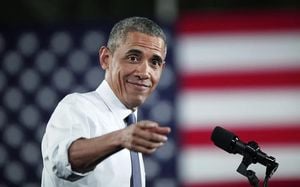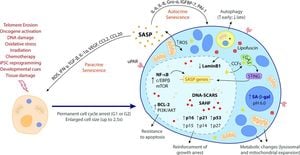Mesut Özil has officially stepped from the football pitch to the political arena, marking yet another chapter in his controversial relationship with Turkish President Recep Tayyip Erdoğan. The former German international footballer was elected to the central decision-making council of Erdoğan's Justice and Development Party (AKP) during a congress held this past Sunday in Ankara.
The election of Özil, who retired from professional football in 2023 after his stints with clubs including Real Madrid and Arsenal, coincided with Erdoğan's re-election as head of the AKP, solidifying his grip on the party since it came to power back in 2002. Several sports analysts and political commentators expressed minimal surprise at Özil's political move, considering his well-documented ties with Erdoğan.
Özil’s affinity for Erdoğan can be traced back several years. Notably, he chose Erdoğan as the witness for his wedding to former Miss Turkey Amine Gülse back in 2019, demonstrating their close relationship. This connection came under intense scrutiny during the 2018 World Cup when Özil and his teammate İlkay Gündoğan posed for photographs with Erdoğan, who was then campaigning for re-election. The backlash from this event was immediate and severe. German officials criticized Özil and Gündoğan’s public display of support for Erdoğan, especially as tensions between Germany and Turkey heightened due to allegations of repressive measures by Erdoğan's government.
The fallout was significant for Özil, whom many saw as a victim of racial prejudice, particularly among the extreme right-wing factions within Germany. After facing vitriol over the photographs, which many claimed were emblematic of divided loyalties, Özil retired from international football, accusing the German Football Association of racism. He noted he felt like a scapegoat for Germany's poor performance at the 2018 World Cup, where the national team failed to advance past the group stage, eventually finishing last.
Özil's career has always been intertwined with issues of identity. Born to Turkish parents, he was celebrated as one of Germany’s leading multicultural symbols, representing the new generation of Germans with migrant backgrounds. Despite his success, ranging from winning the World Cup with Germany to starring at prestigious clubs, the scrutiny he faced over his political affiliations has often overshadowed his sporting achievements.
Since his retirement, Özil has maintained his public persona, often addressing issues surrounding identity and race. His move to join the AKP has drawn various reactions from the public and media alike. Some view his political engagement as natural, considering his past behavior and affiliations, whereas others worry it could entrench his previous controversies even more firmly.
Analysts note this choice is not just about Özil; it also reflects larger themes of how sports figures can influence and be influenced by politics. Özil becomes part of the political fabric of Erdoğan’s ruling party, whose policies often resonate within the Turkish diaspora and among supporters of the AKP. His decision is seen as potentially beneficial for Erdoğan, who has previously sought to strengthen ties to expatriates, leveraging their influence and resources for political support.
While some fervently support Özil's new role, citing the importance of having multicultural influences within Turkish politics, many others express concern. They argue this could perpetuate divisions and worsen the existing tensions around identity politics, especially within Germany. Given Özil’s previous experiences and the related controversies, some critics argue this move could open him up to renewed criticism.
Yet, Özil seems undeterred. By aligning himself more closely with Erdoğan, he appears committed to forging his path within Turkish politics, potentially leveraging his fame and popularity as he transitions from sports to policy-making. With Erdoğan facing increasing challenges both domestically and internationally, Özil’s role could be seen as both timely and strategic.
The broadening of Özil's experiences from sports to politics raises important questions about national identity and the role of athletes beyond their field of play. His recent electoral success may ignite more debates about integration, representation, and the interplay of sports and political allegiances.
Mesut Özil’s new politico-sporting chapter underlines how intertwined the realms of sport and politics can be, particularly for individuals straddling cultural identities. His participation within the AKP might resonate particularly among younger generations and will likely continue to shape discussions surrounding multiculturalism and representation within both German and Turkish spheres.



